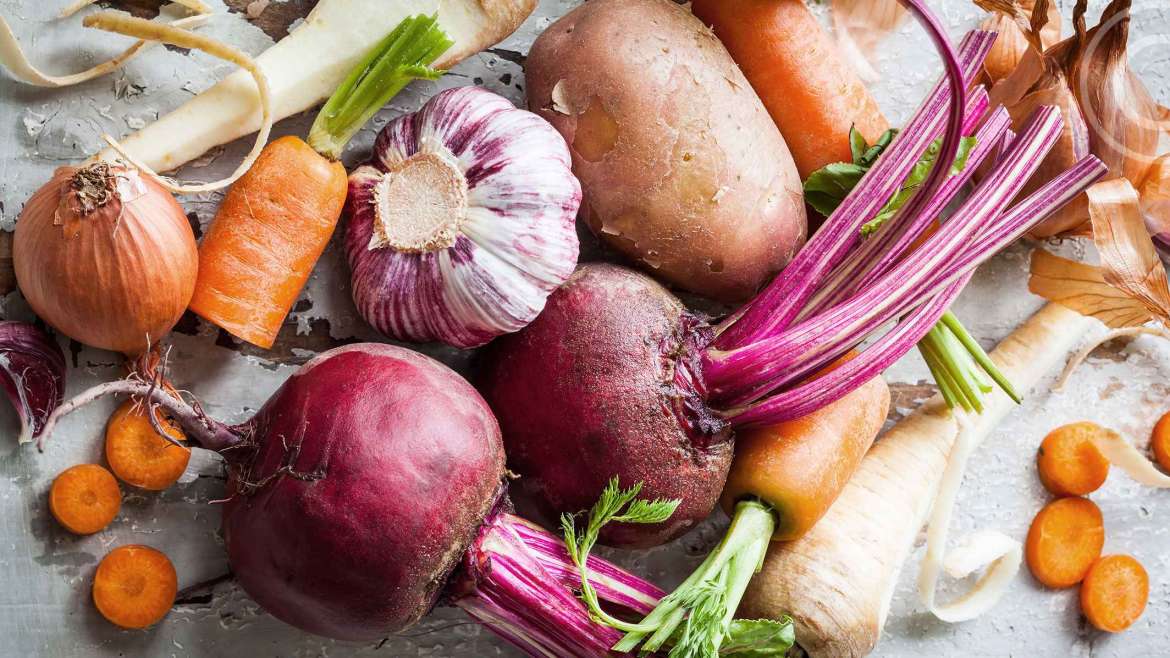People often incorporate fennel into their diet for its licorice-like flavor and health benefits. Many also use it as a natural remedy. Foeniculum vulgare, or fennel, has a pale bulb and long green stalks. It can grow almost anywhere. All parts of the fennel plant, including the bulb, stalk, leaves, and seeds, are edible.
In this article, we detail the health benefits and nutritional content of fennel.
Benefits
Fennel is low in calories but rich in nutrients linked to many health benefits.
The main fennel bulb is a plant-based source of potassium, sodium, phosphorus, and calcium. It is also high in essential fatty acids and magnesium.
People can also use fennel seeds, leaves, and flowers in different ways.
Research shows that fennel seeds may have antioxidant, anti-inflammatory, anti-fungal, and antiviral effects. A 2020 systematic review found that digesting these seeds may also stimulate prolactin to help mothers naturally produce breast milk. A person can ingest fennel seeds in dishes or as an extract.
People can also steep fennel seeds, leaves, and flowers to make tea. Fennel tea may aid digestion and other gastrointestinal issues such as heartburn, bloating, loss of appetite, and colic in infants.
Bone health
The vitamin and mineral content in fennel contributes to building and maintaining bone structure and strength in the following ways:
Phosphate and calcium: Both of these compounds are important in developing and maintaining strong bones.
Iron and zinc: These are crucial for the production and maturation of collagen.
Manganese: This mineral is necessary for bone matrix formation.
Vitamin K: Studies associate low intakes of vitamin K with a higher risk of bone fracture.
Blood pressure
Insufficient potassium intake can increase a person’s risk of developing high blood pressure.
In addition, there is evidence that potassium, calcium, and magnesium decrease blood pressure naturally. All of these are present in fennel.
Dietary nitrates in fennel and other foods have vasodilatory and vasoprotective properties. Because of this, they can help lower blood pressure and protect the heart. A 2018 study found that blood pressure levels were lower after taking nitrate supplements.
Heart health
Fennel contains significant amounts of fiber. Fiber decreases the risk of heart disease as it helps reduce both the total serum cholesterol and low-density lipoprotein (LDL) cholesterol in the blood.
Learn more about cholesterol here.
Vitamin B-6 and folate prevent the build-up of a compound called homocysteine by converting it into a different compound, methionine. When excessive amounts of homocysteine build up, it can damage blood vessels and lead to heart problems.
Cancer
Selenium is a mineral found in fennel absent in many other fruits and vegetables. It contributes to liver enzyme function and helps detoxify some cancer-causing compounds in the body.
Selenium can also prevent inflammation and decrease tumor growth rates.
Fiber intake from fruits and vegetables like fennel is associated with a lower risk of colorectal cancer.
Vitamin C, vitamin A, and beta-carotene are potent antioxidants that can help protect cells against damage from free radicals.
Immunity
The selenium found in fennel appears to stimulate the production of killer T-cells and modulates the immune system in other ways. Studies have shown dietary intake of selenium can improve immune response, especially to viral agents.
Metabolism
Fennel is a source of vitamin B-6, which plays a vital role in energy metabolism by breaking down carbohydrates and proteins into glucose and amino acids. The body can easily use these smaller compounds for energy.
Digestion and regularity
The fiber content in fennel helps to prevent constipation and promotes regularity for a healthy digestive tract.
Weight management and satiety
Dietary fiber is an important factor in weight management and works as a “bulking agent” in the digestive system.
These compounds increase satiety and reduce appetite, making an individual feel fuller for longer and lowering overall calorie intake.
A 2015 study found that females who drank fennel tea before a meal reported feeling fuller than females who had received a placebo, further suggesting that fennel may help suppress appetite.
Increasing iron absorption
Iron deficiency is one of the most common nutrient deficiencies globally and is the leading cause of anemia.
Pairing high-vitamin-C foods, such as fennel, with iron-rich foods can improve the ability of the body to absorb iron.
Estrogen
Estrogen occurs naturally in fennel. It plays a central role in regulating the female reproductive cycle, and it can also determine fertility.
A study on mice found that estrogen plays an important role in controlling factors that contribute to body weight, such as appetite, body fat distribution, and energy expenditure.
Changes in a person’s estrogen levels can lead to weight changes.
Postmenstrual syndrome
A 2020 study found that consumption of fennel seed powder reduced menopausal symptoms in postmenopausal women over 8 weeksTrusted Source.
Skin
Raw fennel is an excellent source of vitamin C. Vitamin C is essential to collagen synthesis, the skin’s support system. It works as an antioxidant to help prevent damage caused by the sun, pollution, and smoke.
Nutrition
According to the United States Department of Agriculture (USDA) National Nutrient Database, one raw fennel bulb weighing 234 grams (g)Trusted Source contains:
72.5 calories
0.47 g of fat
2.9 g of protein
17 g of carbohydrate
7.3 g of dietary fiber
no cholesterol
An 87 g cup of sliced fennel provides:
360 milligrams (mg) of potassium
45 mg of sodium
838 international units (IU) of vitamin A
43 mg of calcium
10.4 mg of vitamin C
0.64 mg of iron
0.041 mg of vitamin B-6
15 mg of magnesium
Fennel also contains:
phosphorous
zinc
copper
manganese
selenium
niacin
pantothenic acid
folate
choline
beta-carotene
lutein
zeaxanthin
vitamin E
vitamin K
Diet
Fennel has a crunchy texture and mildly sweet flavor, making it a pleasant addition to any dish, whether eaten raw or cooked. A person can eat all parts of the fennel plant or use the seeds as a condiment.
When buying fennel, avoid spotted or bruised bulbs and look for firmness and a white or pale green color. Stalks should be green, and leaves should be straight and bundled together. A fennel plant with flowering buds is overripe.
To prepare fennel, cut the stalks off the bulb at the base where they sprout and slice it vertically. Prepare the fennel leaves, stalks, and bulb in a variety of ways, including:
using the stalks as a soup base or stock
sautéing the leaves and stalks with onions for a quick and easy side
mixing sliced fennel with a variety of your favorite fresh vegetables for a light, crisp salad
serving roasted fennel bulbs as an entrée
A person should store dried fennel seeds in an airtight container or a cool, dry area, such as a spice cabinet.
ADVERTISING
Healthy recipes
People can enjoy fennel either as the main ingredient or as a seasoning.
Roasted fennel with Parmesan
Keep things super simple with this delicious dish that transforms fennel’s crunchy bulbs into a creamy, cheesy, caramelized treat. All you need is olive oil, grated Parmesan cheese, and salt and pepper for this quick and easy side dish.
Pasta with fennel, kale, and lemon
This vegetarian pasta dish combines sautéed onion, fennel, kale, garlic, red pepper, and fresh lemon juice for a flavorful meal.
Orange and fennel salad
This fresh salad takes just 10 minutes of prep time. Even though it only requires a few ingredients, it packs a potent dose of flavor.
Comparisons
Curious as to how fennel compares to other flavors? We broke down what makes it unique from similar herbs.
Fennel vs. anise
Fennel and anise are both known for their strong licorice flavoring, and their seeds have a similar appearance.
Like fennel, anise contains high amounts of Vitamin C, calcium, and potassium. Consumers will likely get more nutritional benefits from fennel because it is useful as both a produce and a spice. The primary use of anise is as a spice.
Fennel vs. caraway
Caraway and fennel seeds belong to the same plant family and share similar flavor profiles. Unlike fennel, caraway also includes notes of nuttiness, making it a great addition to savory dishes such as rye bread and various meats.
Caraway contains larger amounts of carbohydrates, proteins, and fiber than fennel and more calories overall.
Fennel vs. dill
People may confuse dill with fennel, as both have feathery, green leaves. However, their tastes are distinct from one another.
Dill shares fennel’s subtle sweetness but has more herbal, grassy flavoring.
Nutritionally, fennel has more fiber, but dill contains more vitamin C, iron, manganese, and potassium.
Risks
Some spices, including coriander, fennel, and caraway, might cause severe allergic reactions in some individuals. Those who are allergic to these spices should not eat them.
Beta-blockers, a heart disease and anxiety medication, can cause potassium levels to increase in the blood. One 2016 study reported that people taking beta-blockers had a 13% higher chanceTrusted Source of developing hyperkalemia, or high blood potassium levels.
People taking these medications may wish to discuss their intake of high-potassium foods such as fennel with their doctor. However, dietary changes are not typically necessary.
High potassium levels in the body can pose a serious risk to people with kidney damage or kidneys that are not fully functional. Damaged kidneys may be unable to filter excess potassium from the blood, which could be fatal.
MEDICAL NEWS TODAY NEWSLETTER
Knowledge is power. Get our free daily newsletter.
Dig deeper into the health topics you care about most. Subscribe to our facts-first newsletter today.
Enter your email
Your privacy is important to us
Summary
Fennel is a nutrient-dense vegetable that can be part of a balanced, healthful diet. People can use the flowers, seeds, leaves, and bulbs of fennel plants in different ways, from seasoning dishes to making teas.
It is important to remember that a single food cannot prevent disease and improve overall health, but a varied, nutritious diet can help. Eating a range of fresh foods is the key to good health.

